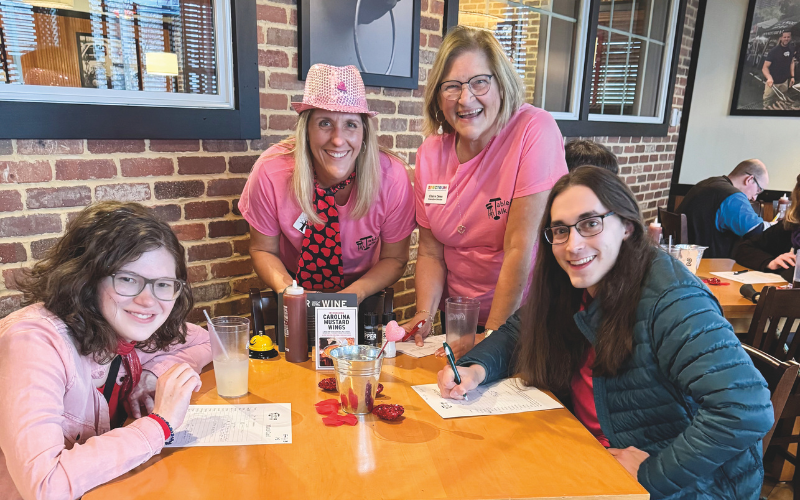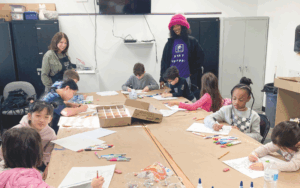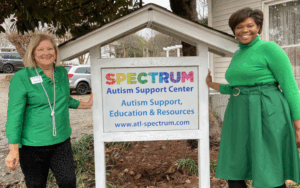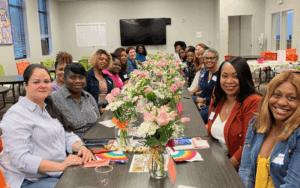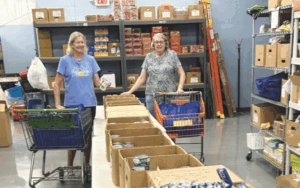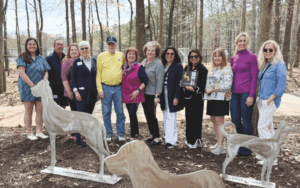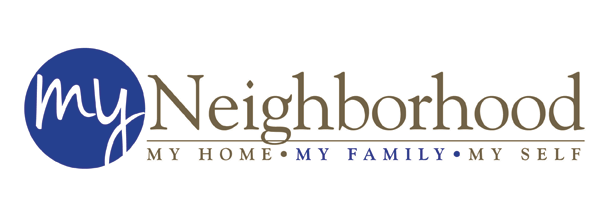By Jennifer Colosimo
At the very first meeting of Spectrum Autism Support Group in Duluth, over 100 people showed up. The need was obvious–there hadn’t been enough programming in the community to support families affected by autism. Claire Dees, the group’s executive director and co-founder, knew about those needs first-hand. And because she lost her own son 14 years ago, she understands this journey and considers her work to support these families a part of his legacy. Today, with its own space on more than an acre in downtown Duluth, Dees has grown the group to include afterschool programs, weekend retreats, Saturday Social Clubs, summer camps and more. She’s created a safe, welcoming space for families to thrive, together.
Q: What inspires you about this work?
Claire Dees: Every individual on the spectrum has a unique way of experiencing the world, and supporting them means learning to see the world from their perspective—something I find incredibly humbling and powerful. Working with families also inspires me because they are often the unsung heroes in the journey. Being able to offer support, guidance or simply a listening ear during difficult times can make a meaningful difference. Helping families feel less alone and more empowered is a privilege, and running support groups creates a sense of community for them. Witnessing individuals and families connect, grow in confidence, gain hope for the journey and support one another keeps me motivated to continue this work.
Q: What did it mean for this group to be featured on Netflix’s “Love on the Spectrum?”
CD: The idea for “Table Talk” was created by Gina Kavali with Life with the Spectrum and me after she asked me if I had ever thought of doing a speed dating event. I told her yes, but that I just needed someone to do it with me. Together, we planned our first “Table Talk” event with 32 individuals at the 101 Bagel Cafe in downtown Duluth, and we attracted the interest of the Netflix show. They recorded at our first “Table Talk” event, which launched that event in a big way when people realized who we were in this community. We now have a waitlist every single month. We’ve had many couples formed, but many have just made good friends, which has been super meaningful. [Being on the show] has really helped people find us in our community and recognize the social needs for adults on the autism spectrum.
Q: Where can people find you most when you aren’t working?
CD: I love to dine out, and my favorites are Local on North, Falling Rabbit and the Magnolia Cottage, which is such a hidden gem! Duluth-area restaurants and businesses have been super supportive of Spectrum and generous with their food donations, gift cards and gift baskets for silent auctions and more.
